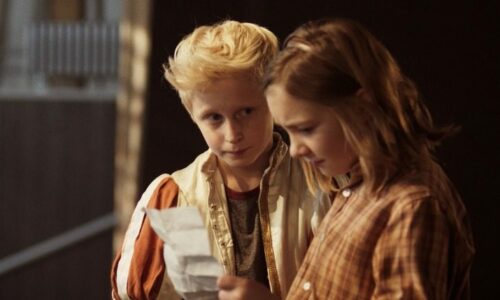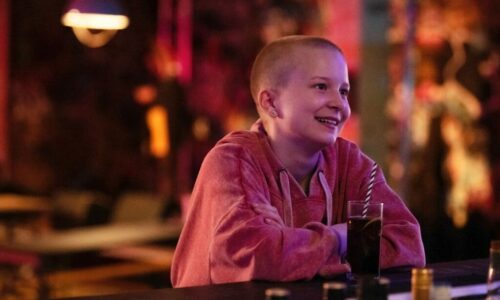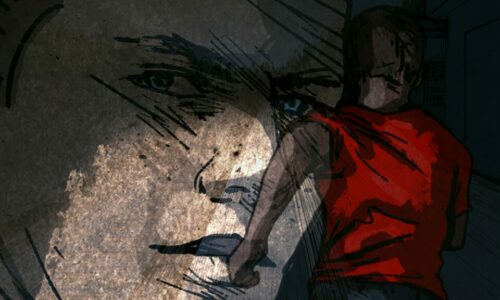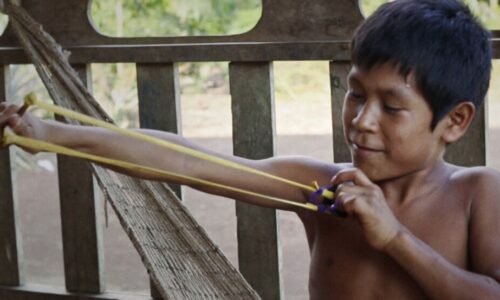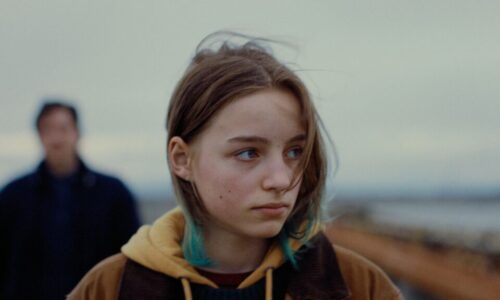Titel: An Cailín Ciúin | The Quiet Girl | Das stille Mädchen/ Grand Prize of the International Jury of Generation Kplus for Best Film
The 11 year old Cáit (Catherine Clinch) lives together with her 4 siblings in poorer circumstances. Her mother is heavily pregnant and just manages to keep the household running and her father often retreats, likes to have a beer in a bar and when he is at home, he tends to only make snide remarks to his children. It is hardly surprising that Cáit retreats very quietly into her own world and longs for more peace and quiet. She also has a correspondingly difficult time at school and is declared extremely strange by other students.
One evening Cáit overhears her parents and learns that her father would like to place her somewhere else. Shortly after, her mother reads a handwritten letter and Cáit is brought to her mother’s cousin’s house without any further information or a noteworthy farewell from the family. Her father, who brought her there by car, gets out of the car and tries to have a rather put-upon dialogue with the man about the current hot weather, while his daughter continues to linger in the car without him giving her a single glance.
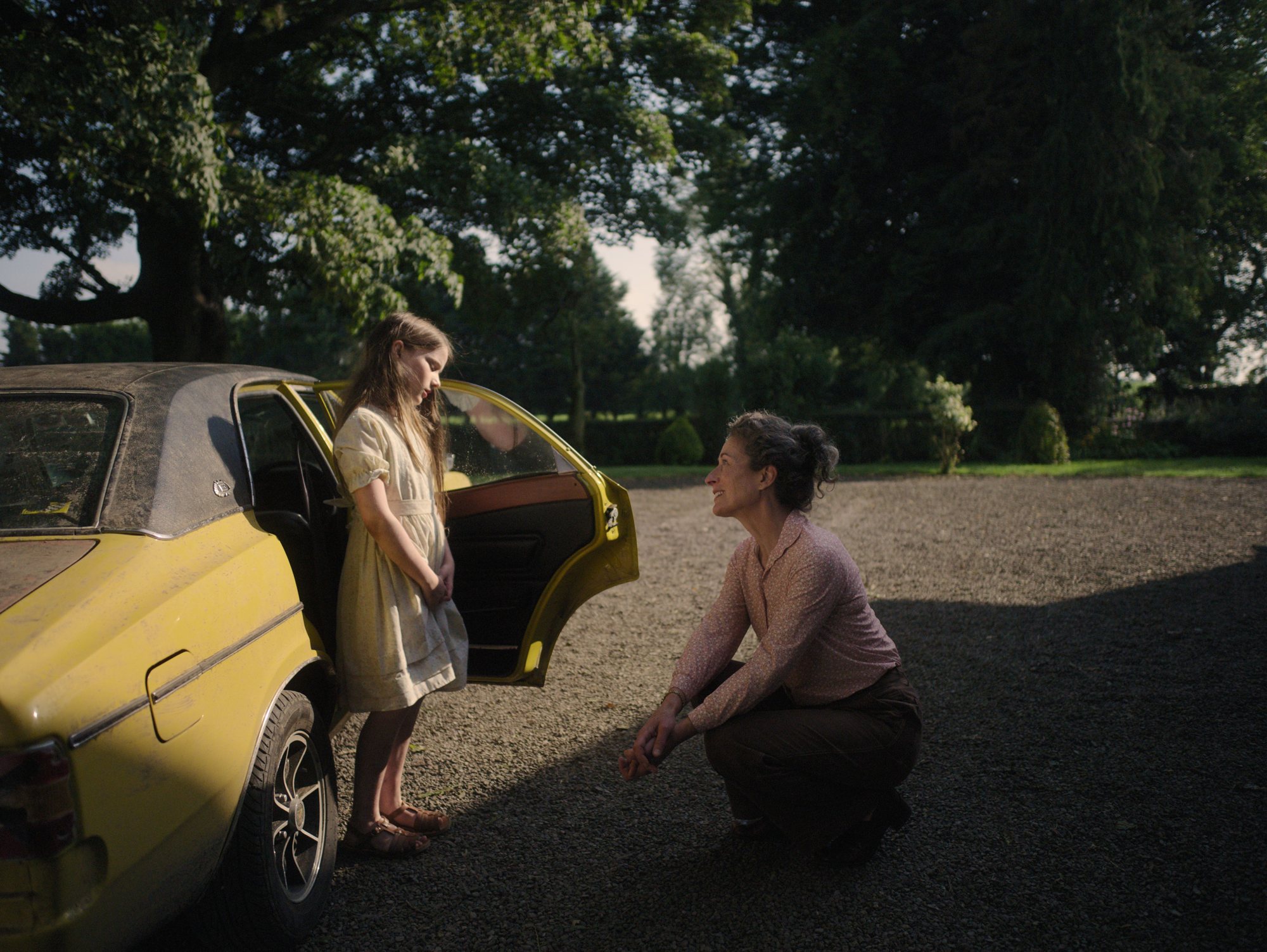
A few minutes pass before the aforementioned cousin (Eibhlín) appears at the car and offers her hand to Cáit. For the first time, it seems, someone comes to her eye level and pays attention to her. Visibly unsettled, she gets out of the car and Eibhlín looks her up and down, but she remains very gentle and friendly towards the child. She tells her that the last time she saw Cáit was when she was still in the baby carriage.
Her father, on the other hand, has not a single good word to say, tells her that this child will eat the hair off her head, and finally leaves the farm without a word or an affectionate farewell, as one would expect from a parent. Over the next few days, Cáit experiences a completely different life. She is cared for, gets clean laundry, her needs are taken care of, and her mishaps, unlike what she expects every time, are never reproached. Eibhlín gives her a lot of love, whereas her husband Seán acts rather distant and obviously would rather have nothing to do with the child. Something, however, seems to preoccupy him when he sees the girl. In the end, he slowly breaks the ice and one day leaves a small cookie on the table, which Cáit immediately puts in her pocket. From now on, Cáit literally begins to blossom. More and more often you can see a smile on her face.
She also experiences for the first time that you can take care of your fellow human beings. Someone from the village died and Eibhlín immediately set out to help. A few days later, all three go to a wake to say goodbye to the deceased. As the event drags on and Cáit is visibly tired, Eibhlín accepts a friend’s offer to take the child home to her two children. On the way there, the two have enough time to talk and the woman uses this time to completely question the girl about Eibhlín and suddenly the question arises in which room Cáit sleeps and whether there would still be clothes of a boy hanging in the closet. Cáit is visibly confused, which the woman of course notices, and so she reports an incident that the couple is very reluctant to talk about. Cáit realizes that even in the best families there can be fates that one must somehow come to terms with. Cáit’s fate is that her time with the foster parents will one day also be over again…
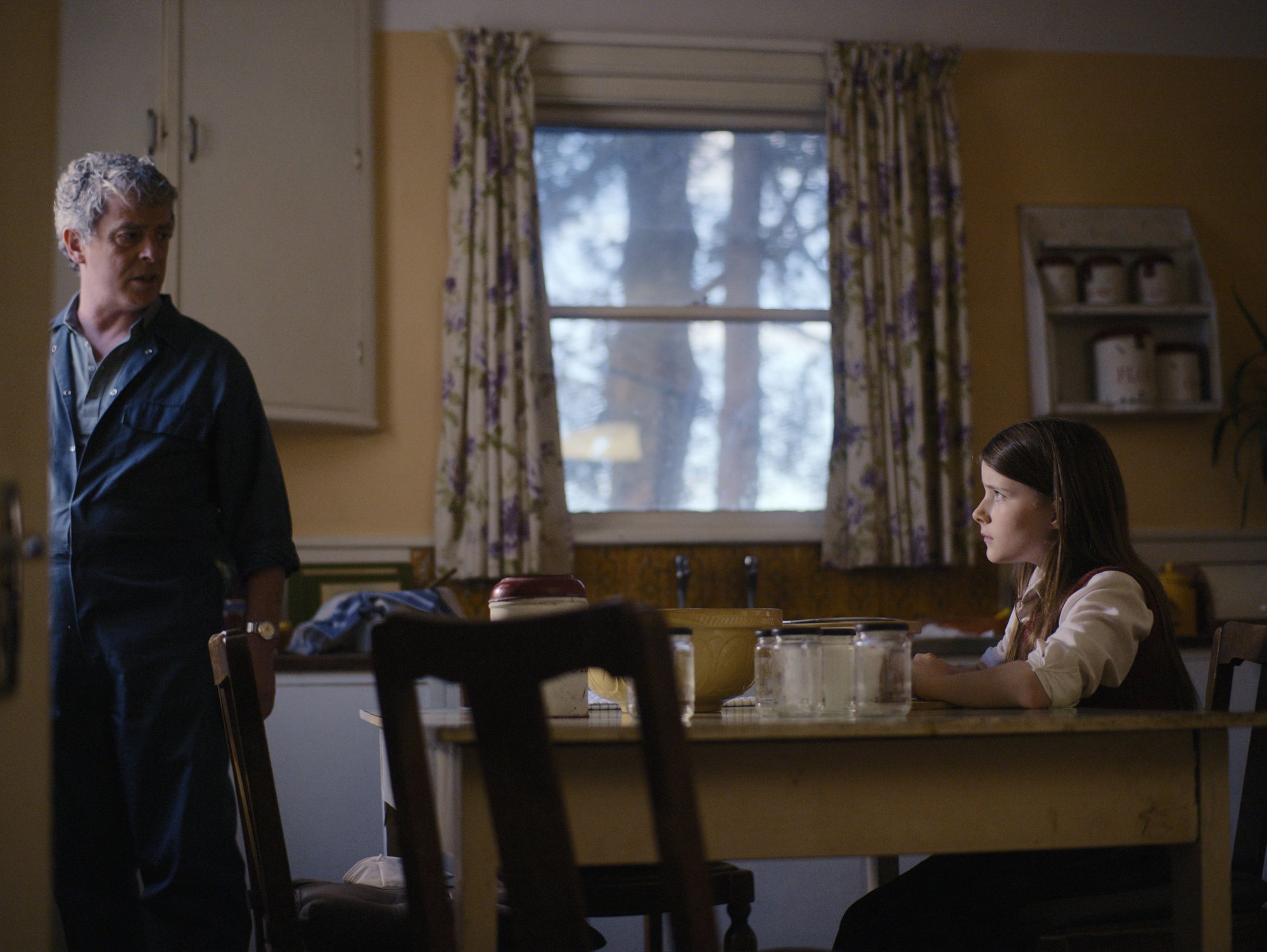
Eibhlín gives her a lot of love, but her husband Seán is initially rather distant and would rather have nothing to do with the child. But something seems to preoccupy him when he sees the girl. Eventually, the ice slowly breaks for him too and in the end he passes her one day to go to the stable. As a small sign, he leaves a cookie on the table, which Cáit immediately puts in his pocket. From now on, Cáit literally begins to blossom. A smile appears on her face more and more often.
Then, one day, when she attends a wake to which her foster parents have taken her, she learns from another person the couple’s hitherto guarded secret. Cáit realizes that even in the best families there are fates that must be dealt with. Cáit’s fate is that her time with the foster parents will also end again, because her time out was only intended for the school vacations.
Conclusion:
An Cailín Ciúin is a very emotional and strong film from Ireland and, by the way, the very first film from this country that has ever been shown at the Berlinale, since very few films are produced in Ireland.
It shows particularly sensitively how even small gestures of everyday life can be enough for great happiness. Everything you get to see, you feel very strongly with this film and that from the beginning to the end.
I was also particularly impressed by all the small details throughout the film. Again and again the camera catches these small moments in close-up, mostly accompanied by a wonderful soft soundtrack, so that you sink deeper and deeper into the cinema seat. In one scene, when Cáit walks through the house for the first time, I felt reminded of Alice in Wonderland. The child explores a completely new and strange world in which he can now calmly find himself in order to continue in real life.
Even though An Cailín Ciúin is a rather quiet film, in the end, figuratively speaking, the feeling is very loud.
Actors:
Catherine Clinch (Cáit)
Carrie Crowley (Eibhlín)
Andrew Bennett (Seán)
Michael Patric (Da)
Kate Nic Chonaonaigh (Mam)
Joan Sheehy (Úna)
Director:
Colm Bairéad
Info about the film:
https://www.berlinale.de/en/programme/programme/detail.html?film_id=202204521
